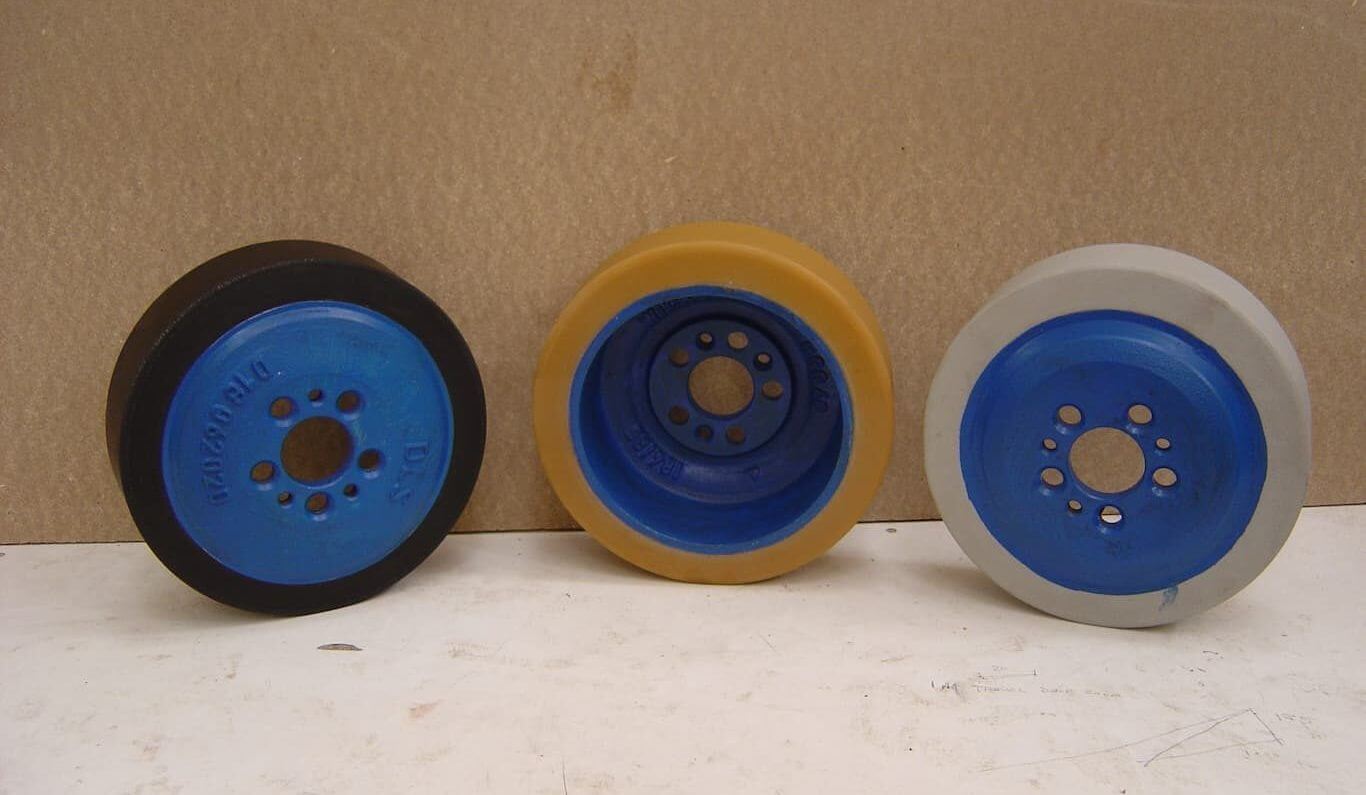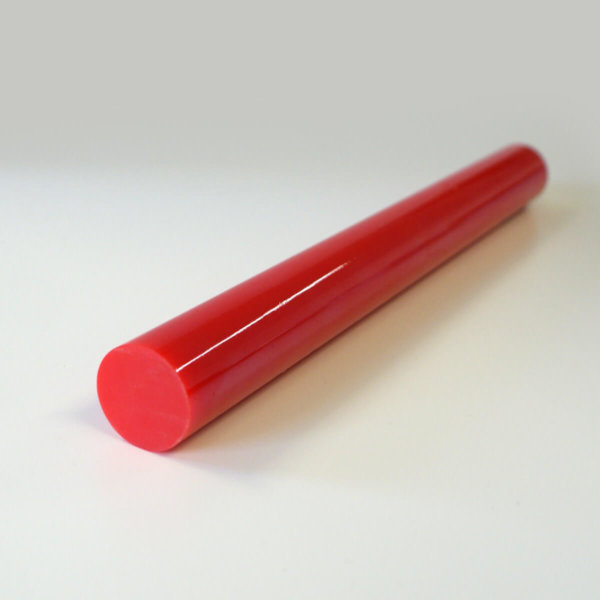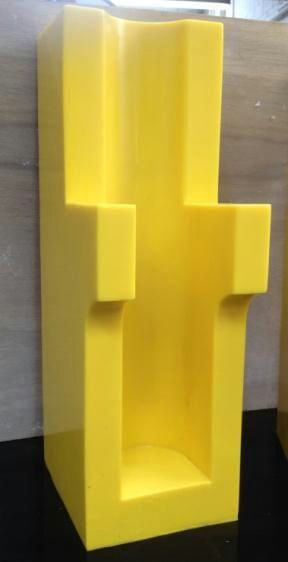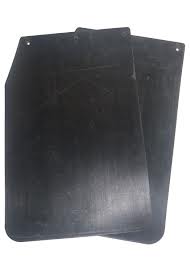Does specifying nylon or polyurethane wheels and casters depend on the function and performance aims you have? We look at polyurethane versus nylon, considering both options to see what material makes the best wheels.
The diversity of wheels needed to drive manufacturing, engineering and warehousing equipment is incredible. This means specifying the perfect part involves many considerations, including whether nylon or polyurethane provides the ideal wheel moulding material.
Keeping your wheels turning is not as simple as it sounds, if your machine operates under pressure, in extreme environments, at high speeds or noise-sensitive settings for example. Or, if your productivity depends on minimising downtime to replace wheels.
This article explores the advantages of using nylon to create this category of part and showcases polyurethane’s advantages to creating prototypes and bulk wheel orders.
Surface impact
This is perhaps where the biggest advantage of polyurethane wheels can be found. Nylon versions can prove detrimental to the surfaces they run on. Including wearing through solid flooring over time.
However, the unique composition of polyurethane means it can be used to produce wheels that function brilliantly – even under intense speed and weight – without damaging the surface they run across.
Polyurethane wheels won’t scratch or mark flooring – or damage carpeting – which can be especially vital if you need a supply of wheels for equipment used in shops, hospitality venues or public buildings for example.
Hardness
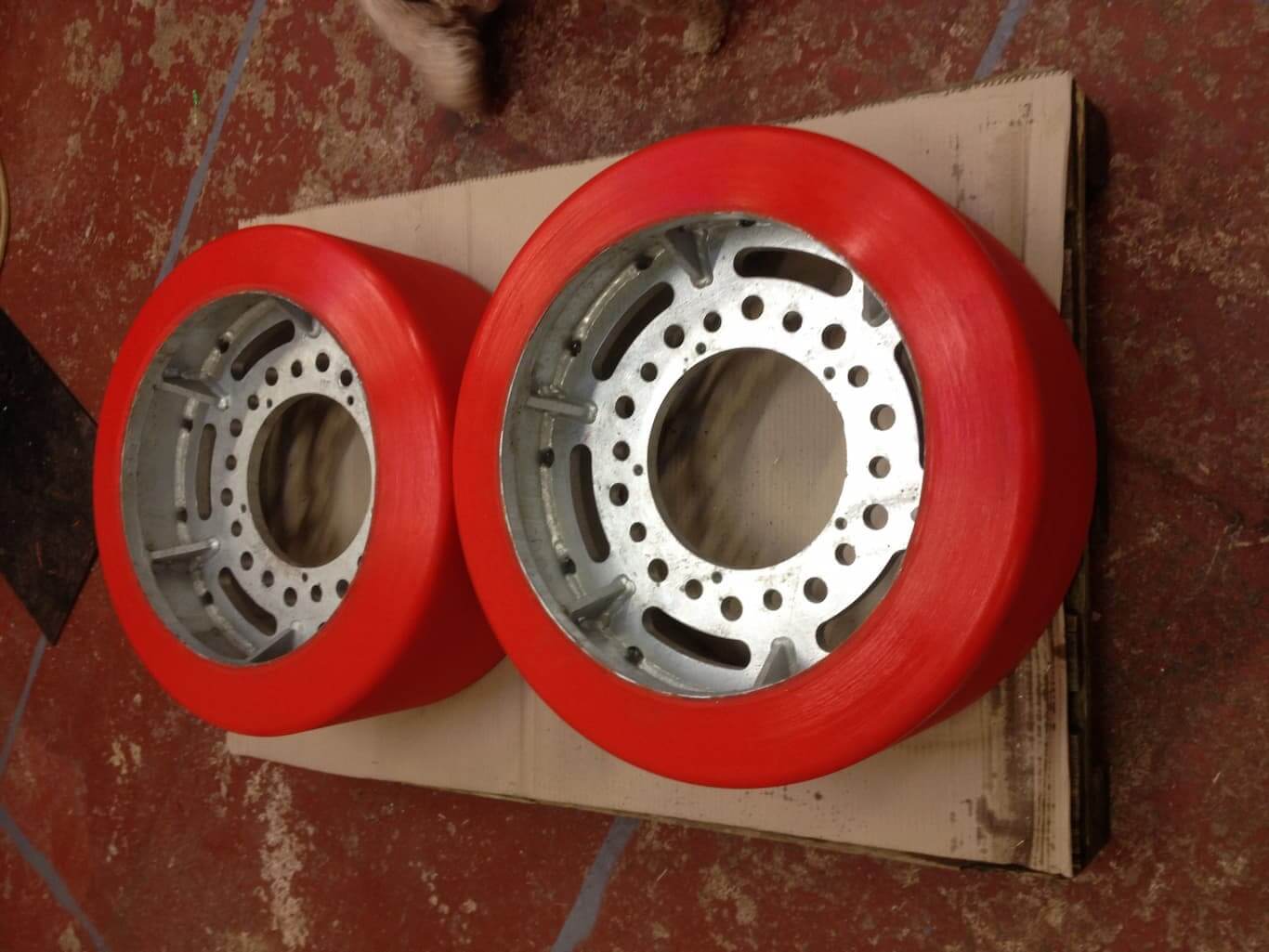
Nylon wheels are often commissioned due to the degree of hardness that can be achieved. However, keep in mind that it is possible to vary the tensile properties of polyurethane to an incredible degree. It can be created to be as hard as metal or as soft as foam, and anything in between!
Speed/energy to move
Also, there is a view that nylon wheels create smoother traction, meaning less energy is needed to move them, compared to polyurethane. Though the finish put on poly wheels can be incredibly slick and flawless, ensuring they work fast and efficiently too.
Related article: Why polyurethane rollers out-perform other materials
Environmental conditions
Both nylon and polyurethane offer good resistance to temperature extremes and are resistant to water, moulds and pollutants such as oil.
Acoustic differential
Nylon wheels can create greater sound variations compared to polyurethane. Polyurethane can be blended to provide the preferred rating on the Shore hardness scale, but also with valuable sound-proofing properties.
This ability to operate quietly can be crucial when you need wheels for equipment in retail settings for example, or in machinery that must meet sound management targets. Even for parts such as pallet truck wheels, the noise reduction benefit of polyurethane can be important.
Also read: The ultimate guide to polyurethanes
Weight and friction resistance
Wheels made from nylon can load bear to an impressive level, and they hold their integrity even when operating under conditions that lead to friction and abrasion.
However, polyurethane can be formulated to be strong and reliable under pressure. It is often specified due to its ability to withstand conditions that would break, crack, flake, distort or roughen alternative materials for parts.
Debris penetration
This is another comparative feature of nylon and polyurethane that largely pivots on commissioning the right type of poly wheel for your purpose.
Nylon has the reputation of being reliable in holding its shape – and continuing to function well – even if the wheels are constantly or occasionally moving over debris. However, you can specify polyurethane to be resistant to penetration, springing back into shape even under pressure.
Durability
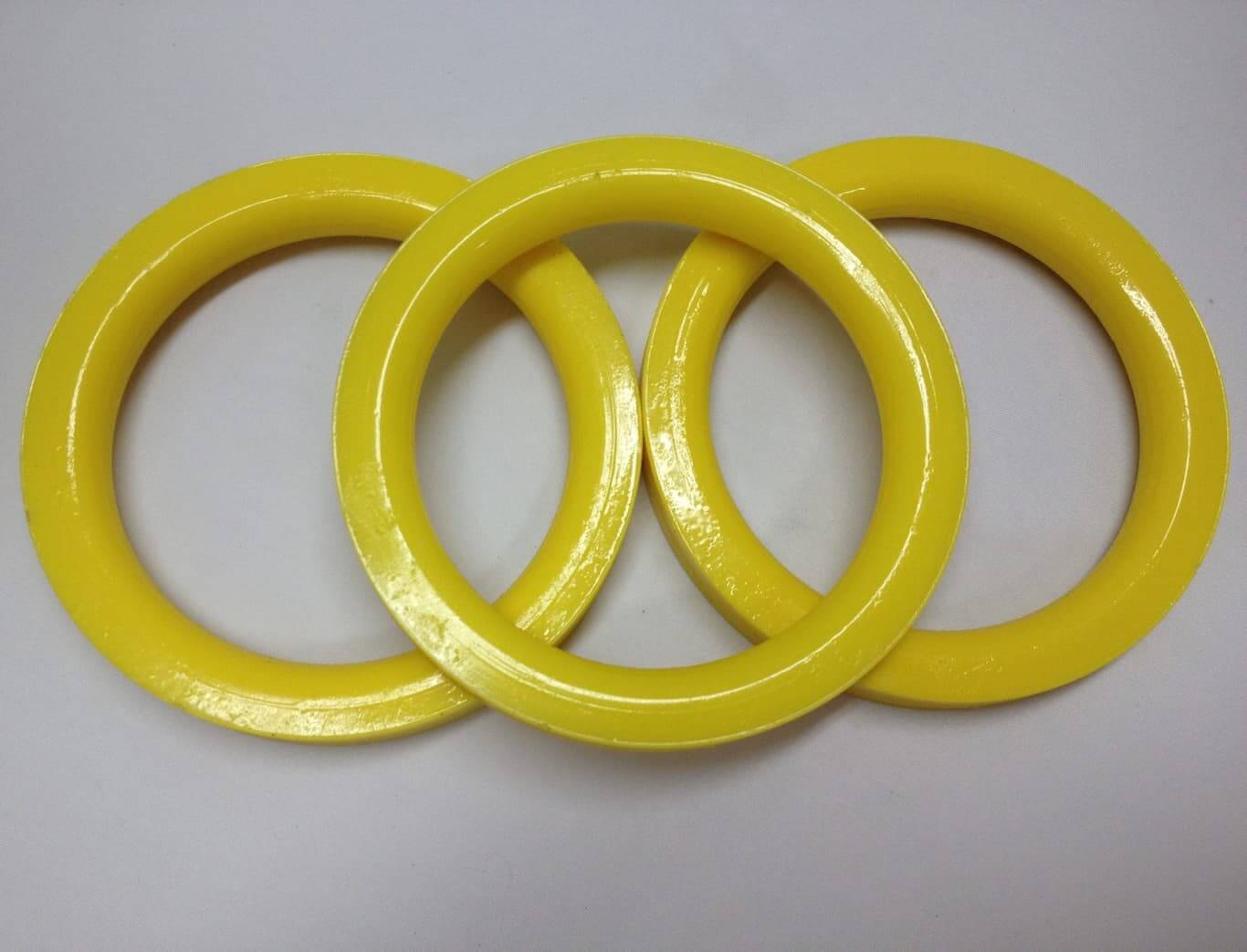
This point links to the above. Nylon has been a commonplace material for wheels due to its durability. This too is where choosing the correct quality of custom moulded polyurethane can provide a similar advantage. Polyurethane wheels can be equally long-lasting, leading to value for money in terms of the lifecycle and avoiding machinery or equipment repairs.
Related article: Rubber vs. Polyurethane Suspension Bushes
How to choose nylon vs. polyurethane wheels?
As the gap between these different materials to produce wheels is quite narrow in many aspects, much depends on how highly you value polyurethane’s incredible versatility and its other range of important properties. As well as its sound management and surface protection advantages. In most situations, polyurethane is an excellent – and often preferable – alternative.
Want to find out how much it will cost to make your products?
